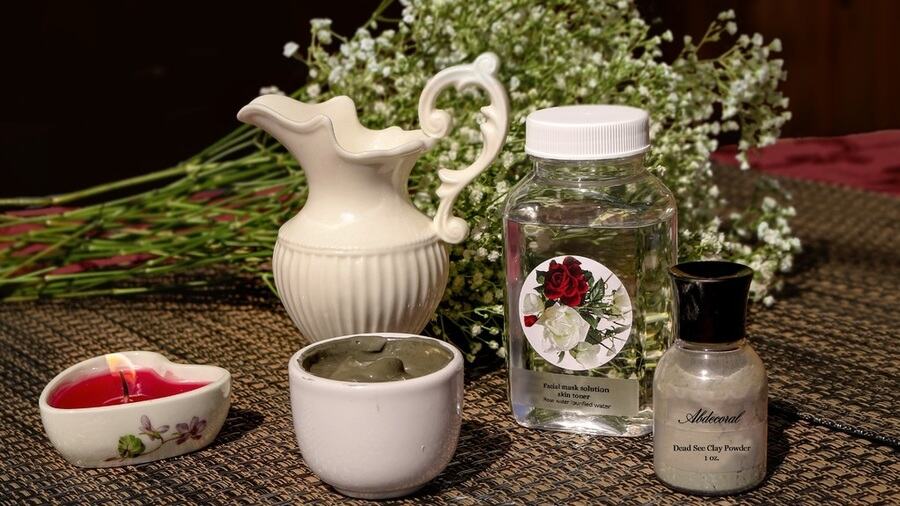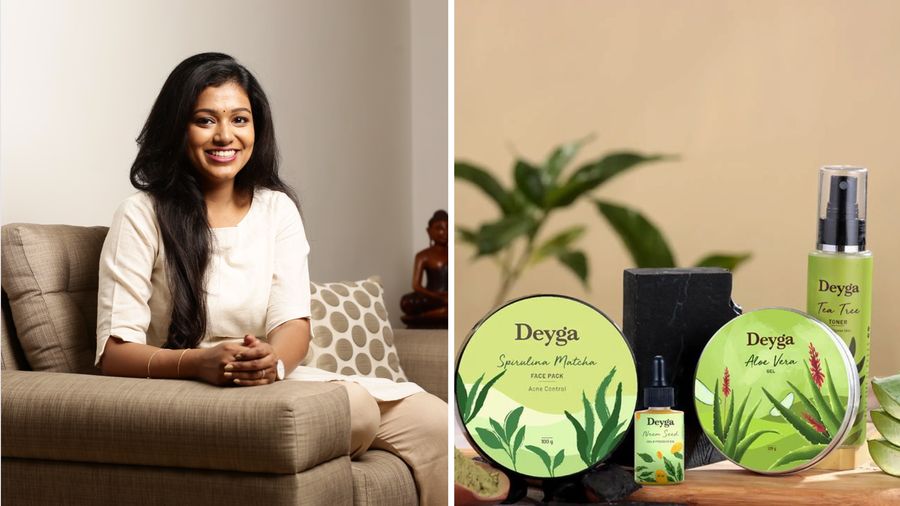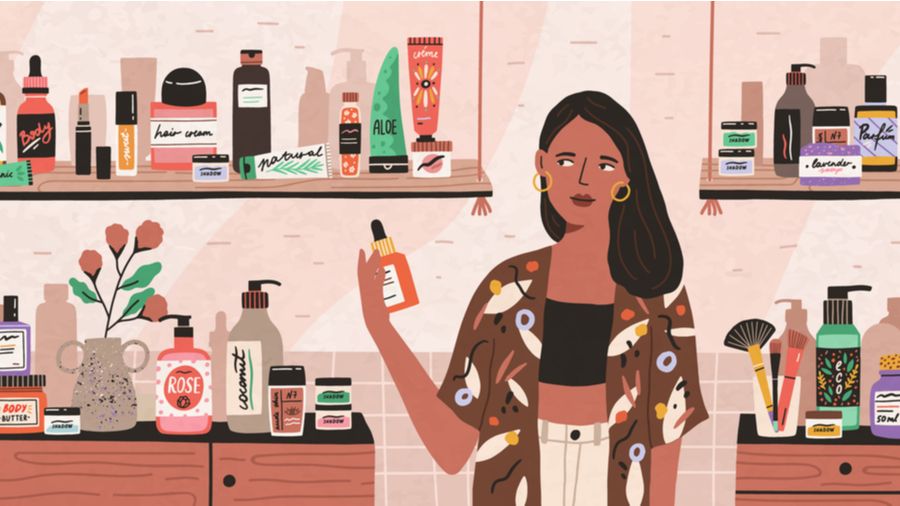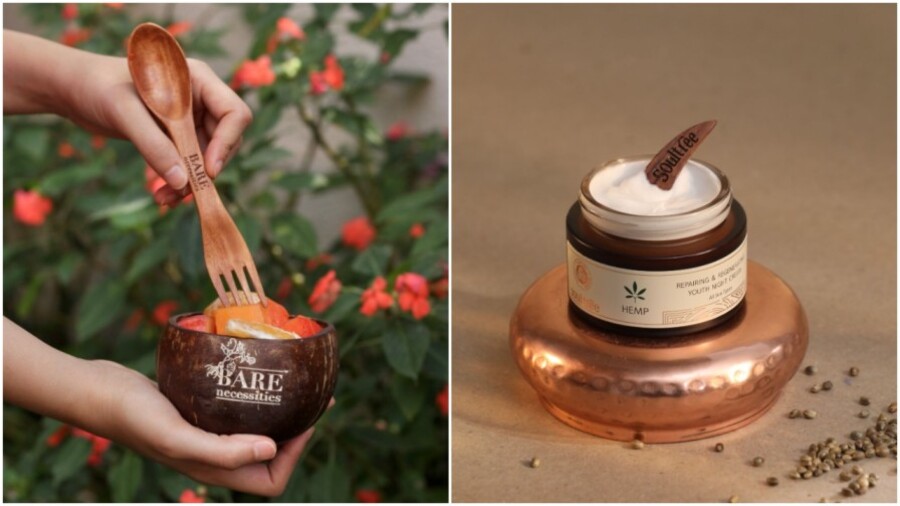Over the last decade, the Indian beauty market has seen a strong influx of skincare solutions, homegrown brands, local alternatives and dupes for cult beauty buys. However, Ayurvedic ingredients have always been in demand, thanks to their natural, healing attributes.
Today, modern skincare enthusiasts swear by a mantra that’s been around for generations — the fewer the ingredients on the back of a product, the better it is for you. In short, less is more.
Natural skincare brand Deyga Organics has designed its products around this motto of minimalism. Started by Arthi Raguram in 2018, this homegrown brand upholds a sustainable and cruelty-free approach and has a focus on natural ingredients that can contribute to holistic living.
“I attended a soap-making workshop around 2017 and started making various soaps at home, one of which was a charcoal soap. I used the soap myself and my skin got better. My acne healed as well. My extended family members and friends also tried it and they too observed good results. They were the ones who suggested that I turn it into a proper business,” said Arthi.
Deyga is named after the Tamil word Deygam meaning body. Headquartered in Erode, Tamil Nadu, the label sources its raw organic ingredients from the family’s 60-acre farm, which grows produce like coconut and aloe vera. It also sources some ingredients from other local farmers in India and overseas.
My Kolkata chatted with Arthi Raguram to learn about some essential monsoon self-care tips:
Here are the edited excerpts from the conversation…
Monsoon special self-care hacks
What are the biggest mistakes people make with haircare and skincare, during monsoon?
People often don’t change their skincare and haircare routine according to the weather but our skin and hair require special attention during monsoons.
The harmful UV rays are there even if you see rain and clouds. So never skip sunscreen and moisturiser irrespective of the weather. Our skin always requires hydration and nourishment, hence moisturising is of utmost importance. It builds a barrier on the skin and provides the skin with essential nutrients to keep the skin soft, supple, and youthful.
People make another mistake — not cleaning their face and hair properly. An unwashed face leads to clogged pores which then turn to acne while a dirty scalp is a breeding ground for dandruff and leads to skin itchiness.
What are some monsoon must-haves? Also, what should people avoid using during the rains?
Sunscreens, light-weight gel and water-based moisturisers, shampoo, and conditioner are a must-have during monsoon.
Using mud-based face packs like sandalwood and fuller’s earth will take out the gunk from the face and will give a smooth skin. Peel-off masks for blackheads work well during this season.
Try avoiding any oil-based serums or moisturisers as they can clog your pores during monsoon. Make sure to skip heavy foundations, concealers, or heavy base makeup in general, as they lead to product buildup and it eventually exposes your skin to acne.

Using mud-based face packs like sandalwood and fuller’s earth is recommended in the monsoon
The easiest ways to battle hair humidity and frizziness during the monsoons?
The high humidity makes the hair really frizzy and managing it is certainly a difficult task! Frizz makes the hair dull and dry. So, switch to mild shampoos with nourishing properties.
Shampoos infused with the goodness of jojoba oil or argan oil work wonders during monsoon. They provide the hair with the necessary nourishment and keep it frizz-free, much like leave-in conditioners.
Oil your hair once a week with almond oil, coconut oil, or avocado oil and be very gentle with your hands on the scalp. Try to keep your hair in buns or plaits to avoid frizz on your hair ends. And never forget to use a heat protectant as heat can make your hair even frizzier.
Coconut water — yay or nay?
Coconut water has always been considered a great way to hydrate your hair. But does it also help with hair fall and acne?
The anti-fungal and anti-microbial properties of coconut water prevent acne on the skin by preventing excess sebum or oil production on the face which is one of the reasons for acne. Washing your face with coconut water can keep acne at bay. It also helps to remove the stubborn scars of acne on the face.
Coconut water can increase blood flow on the scalp and allow the scalp to grow better hair. It combats dry, dull, and frizzy hair too as it has natural conditioning properties.
Be mindful of your diet
Do you think eating and drinking healthy has a bigger impact on hair and skin than the ingredients we choose?
Our diet plays a very important role in keeping our skin and hair healthy. Food provides us protein, essential fatty acids, vitamins, and minerals which are essential for our internal well-being. When the body organs function properly, it shows up on the skin. Whenever anyone feels sick, there is a direct reflection of their health on the skin and hair as they become dull and lacklustre.
However, having a healthy diet full of fresh fruits, vegetables, and protein like eggs, chicken, fish, and other nutritious foods internally boosts hair and skin.
However, the importance of using skincare and haircare products should not be discounted either. They act as barriers to our skin and hair and add extra care and nourishment. For an instant dose of radiance topical application of products is always recommended. But good skincare and haircare would be best reflected when combined with a healthy diet.
Exfoliation — to try or not to try?
Do you think regular exfoliation is better than chemical peel exfoliation?
Physical and chemical exfoliation both have their advantages and side effects. While physical exfoliation has been followed for decades, people are now switching to chemical exfoliation for its added benefits. Physical exfoliation is safe on the skin and can be used by beginners as well. However, since physical exfoliation contains granules and particles it can lead up to micro-tears, inflammation, and dryness on the skin. Thus, once a week physical exfoliation is recommended and one must always use small particles while scrubbing the face.
On the other hand, chemical exfoliation is better if anyone wants to tackle a particular skin issue like pigmentation, acne, large pores, uneven skin tone, and more. Chemical exfoliators work beneath the skin layer and penetrate better on the skin. Since they contain actives like Vitamin C, Niacinamide, Retinol, Salicylic Acid and Glycolic Acid, they are great for the skin in the long run and they prevent your skin from early signs of ageing and other skin issues. But using a high amount of chemical exfoliators can lead to skin sensitivity. So, one must be aware of the number of active ingredients they’re using on the skin.
Chemical peel exfoliation has become popular in skincare recently. What are the things one must keep in mind before using it?
Being aware of certain facts can prevent your skin from any unnecessary issues. Chemical exfoliators contain active ingredients, so doing a patch test on the skin is important before using them. Know your skin type and what skin concerns you have.
If you have acne issues, a salicylic-based chemical exfoliation would work better on your skin than a glycolic one.
Another important thing to consider is the percentage of active ingredients in a chemical exfoliator. For a beginner, 5%-10% is safe to use on the skin. But for mature skin, one can go up to 30%. Excessive amounts can lead to redness and inflammation on the skin, so check out the quantity thoroughly. Also, check out the usage and how often it can be used on your skin to get the maximum results.
Pairing up active ingredients can be worse for the skin. Hence ensure knowing which active ingredient or skincare product you can put after using a chemical peel exfoliation.
Beard grooming tips
Beard grooming has to be one of the most talked about self-care practices. How can one take better care of their beard to avoid itchiness and ingrowth of hair?
To avoid itchiness it is important to wash your face and use warm water regularly to avoid the build-up of bacteria and prevent ingrown hairs. Beard hair also requires nourishment and conditioning, so using a beard conditioner will keep the beard hair soft and would be easy to detangle as well.
Start by cleansing your face with a mild cleanser and always use shaving lotions for a smooth shave. Shaving on dry skin can lead to flakiness and ingrown hair. Never put too much pressure while shaving and avoid pulling the skin as it can cause friction. After shaving, use a mild after-shave lotion which will help to soothe the skin and prevent any itchiness.
Beard oil provides nourishment and hydration to the hair. Moreover, beard oil is effective in preventing itchiness or dryness of the skin.


